- Clone
- dG9 (See other available formats)
- Regulatory Status
- RUO
- Other Names
- PRF1, P1, PFP, HPLH2
- Isotype
- Mouse IgG2b, κ
- Ave. Rating
- Submit a Review
- Product Citations
- publications
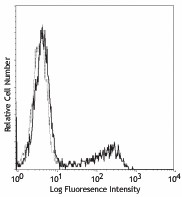
-

Whole blood lymphocytes stained intracellularly with dG9 FITC
| Cat # | Size | Price | Save |
|---|---|---|---|
| 308103 | 25 tests | ¥24,640 | |
| 308104 | 100 tests | ¥56,760 |
Perforin is a 70 kD cytolytic protein that is expressed in the cytoplasmic granules of cytotoxic T lymphocytes (CTLs) and natural killer (NK) cells. Perforin is one of the major effector molecules used by cytotoxic T cells and NK cells to mediate targeted cell lysis.
Product DetailsProduct Details
- Verified Reactivity
- Human
- Reported Reactivity
- Cow
- Antibody Type
- Monoclonal
- Host Species
- Mouse
- Immunogen
- Purified granules from the human lymphoma cell line
- Formulation
- Phosphate-buffered solution, pH 7.2, containing 0.09% sodium azide and BSA (origin USA)
- Preparation
- The antibody was purified by affinity chromatography, and conjugated with FITC under optimal conditions.
- Concentration
- Lot-specific (to obtain lot-specific concentration and expiration, please enter the lot number in our Certificate of Analysis online tool.)
- Storage & Handling
- The antibody solution should be stored undiluted between 2°C and 8°C, and protected from prolonged exposure to light. Do not freeze.
- Application
-
ICFC - Quality tested
- Recommended Usage
-
Each lot of this antibody is quality control tested by intracellular immunofluorescent staining with flow cytometric analysis. For flow cytometric staining, the suggested use of this reagent is 5 µl per million cells in 100 µl staining volume or 5 µl per 100 µl of whole blood.
- Excitation Laser
-
Blue Laser (488 nm)
- Application Notes
-
Clone dG9 primarily recognizes perforin associated with cytotoxic granules9. Additional reported applications (for the relevant formats) include: immunoprecipitation, intracellular flow cytometric analysis and immunofluorescence microscopy5,7, and immunohistochemical staining of acetone-fixed frozen tissue sections and formalin-fixed paraffin-embedded tissue sections1,4.
Does not cross-react with mouse1. -
Application References
(PubMed link indicates BioLegend citation) -
- Hameed A, et al. 1992. Am. J. Pathol. 140:1025. (IHC)
- Schaerli P, et al. 2004. J. Exp. Med. 199:1265.
- Watanabe N, et al. 1997. Blood 90:3662.
- Mauad T, et al. 2004. Pediatr. Pulmonol. 38:233. (IHC)
- Barrat FJ, et al. 1999. P. Natl. Acad. Sci. USA 96:8645. (IF)
- Chen H, et al. 2005. J. Immunol. 175:591.
- Bryceson YT, et al. 2007. Blood doi:10.1182/blood-2007-02-074468. (IF)
- Wood SM, et al. 2009. Blood 114:4117. PubMed
- Makedonas G, et al. 2010. PLoS Pathog. 6:e1000798.
- Product Citations
-
- RRID
-
AB_314701 (BioLegend Cat. No. 308103)
AB_314701 (BioLegend Cat. No. 308104)
Antigen Details
- Structure
- 70 kD
- Distribution
-
CTL, NK (cytoplasmic granules)
- Function
- Mediates targeted cell lysis
- Cell Type
- NK cells, T cells
- Biology Area
- Cell Biology, Immunology, Innate Immunity, Neuroscience
- Molecular Family
- Cytokines/Chemokines
- Antigen References
-
1. Lieberman J. 2003. Nat. Rev. Immunol. 3:361.
2. Trapani J, et al. 2002. Nat. Rev. Immunol. 2:735. - Gene ID
- 5551 View all products for this Gene ID
- UniProt
- View information about Perforin on UniProt.org
Other Formats
View All Perforin Reagents Request Custom Conjugation| Description | Clone | Applications |
|---|---|---|
| FITC anti-human Perforin | dG9 | ICFC |
| PE anti-human Perforin | dG9 | ICFC |
| Purified anti-human Perforin | dG9 | ICFC,IP,ICC,IHC |
| Alexa Fluor® 488 anti-human Perforin | dG9 | ICFC |
| Alexa Fluor® 647 anti-human Perforin | dG9 | ICFC |
| APC anti-human Perforin | dG9 | ICFC |
| Pacific Blue™ anti-human Perforin | dG9 | ICFC |
| PerCP/Cyanine5.5 anti-human Perforin | dG9 | ICFC |
| Brilliant Violet 510™ anti-human Perforin | dG9 | ICFC |
| Brilliant Violet 421™ anti-human Perforin | dG9 | ICFC |
| Alexa Fluor® 594 anti-human Perforin | dG9 | ICC |
| APC/Cyanine7 anti-human Perforin | dG9 | ICFC |
| PE/Cyanine7 anti-human Perforin | dG9 | ICFC |
| Brilliant Violet 711™ anti-human Perforin | dG9 | ICFC |
| PE/Dazzle™ 594 anti-human Perforin | dG9 | ICFC |
| TotalSeq™-B0044 anti-human Perforin | dG9 | ICPG |
Customers Also Purchased
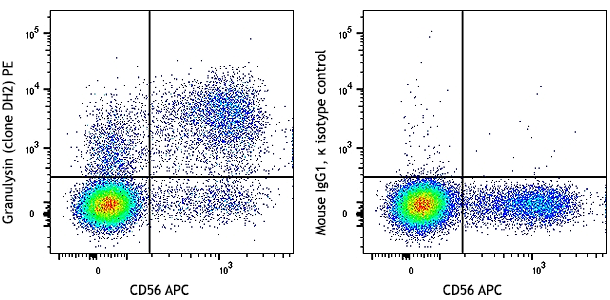
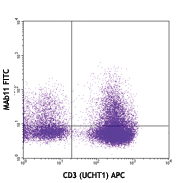
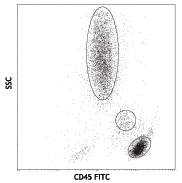
Compare Data Across All Formats
This data display is provided for general comparisons between formats.
Your actual data may vary due to variations in samples, target cells, instruments and their settings, staining conditions, and other factors.
If you need assistance with selecting the best format contact our expert technical support team.
-
FITC anti-human Perforin
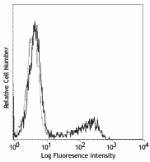
Whole blood lymphocytes stained intracellularly with dG9 FIT... -
PE anti-human Perforin
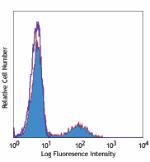
Human peripheral blood lymphocytes intracellularly stained w... -
Purified anti-human Perforin

Whole blood lymphocytes stained intracellularly with dG9 FIT... -
Alexa Fluor® 488 anti-human Perforin
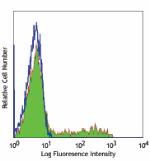
Human peripheral blood lymphocytes intracellularly stained w... -
Alexa Fluor® 647 anti-human Perforin
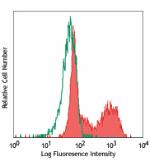
Human peripheral blood mononuclear cells intracellularly sta... -
APC anti-human Perforin
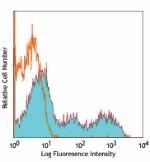
Human peripheral blood lymphocytes intracellularly stained w... -
Pacific Blue™ anti-human Perforin
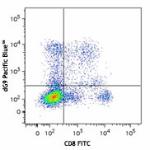
Human peripheral blood lymphocytes were surface stained with... 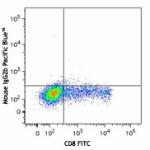
-
PerCP/Cyanine5.5 anti-human Perforin

Human peripheral blood lymphocytes were surface stained with... -
Brilliant Violet 510™ anti-human Perforin
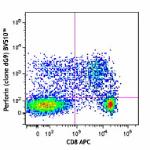
Human peripheral blood lymphocytes were surface stained with... 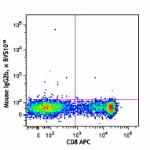
-
Brilliant Violet 421™ anti-human Perforin
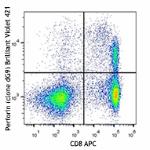
Human peripheral blood lymphocytes were surface stained with... 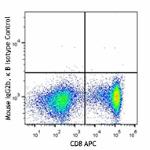
-
Alexa Fluor® 594 anti-human Perforin
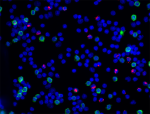
Human peripheral blood mononuclear cells were fixed with 2% ... -
APC/Cyanine7 anti-human Perforin

Human peripheral blood lymphocytes were surface stained with... -
PE/Cyanine7 anti-human Perforin

Human peripheral blood lymphocytes were surface stained with... -
Brilliant Violet 711™ anti-human Perforin
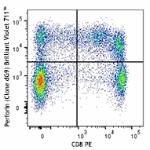
Human peripheral blood lymphocytes were surface stained with... 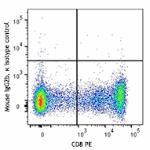
-
PE/Dazzle™ 594 anti-human Perforin
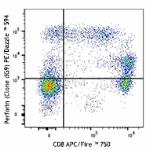
Human peripheral blood lymphocytes were surface stained wit... 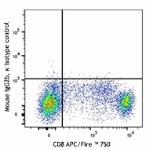
-
TotalSeq™-B0044 anti-human Perforin













Follow Us